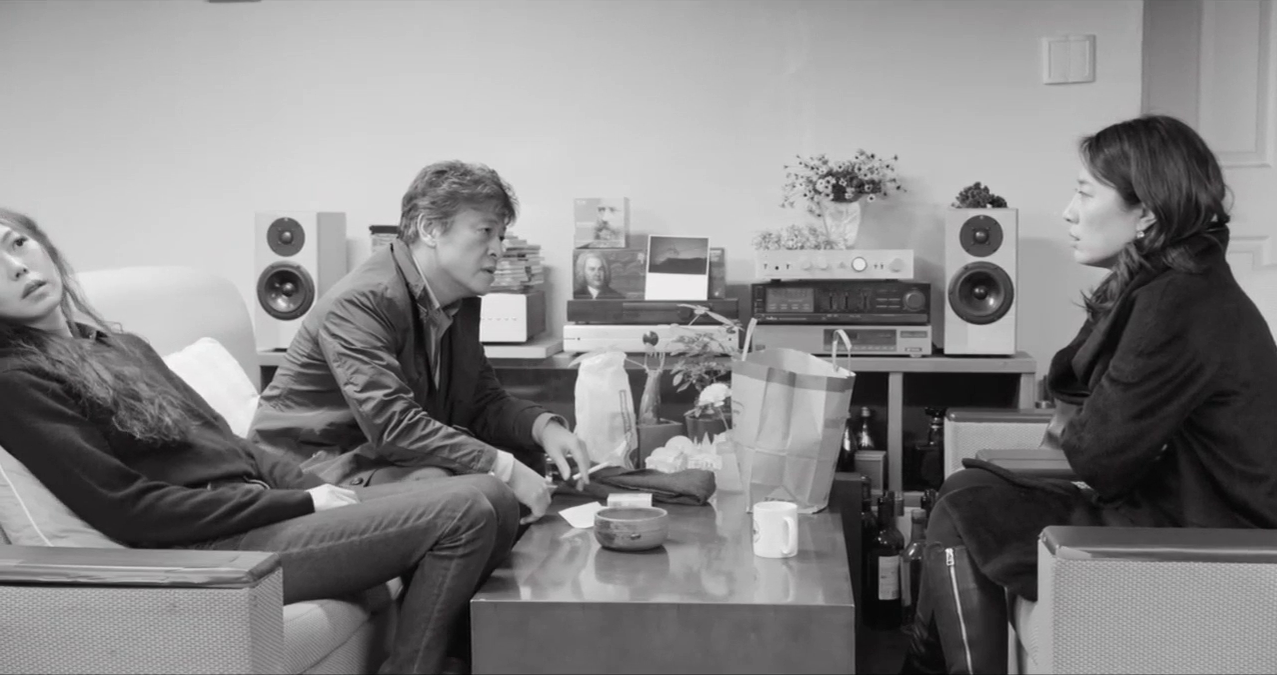The Day After (Hong Sangsoo, 2017)

“I think that I have no control over my destiny and that I don’t play the leading role in it.
I think that I can die at any time, I am ready to accept it.
I think everything is less serious than it seems.
In fact, I think that everything is wonderful, always.
I believe in this world.”
Kim Minhee’s angelic presence doesn’t quite know what to make of things when she finds herself in the middle of a Hong Sangsoo movie. Mistaken for her boss’s mistress by the man’s wife and assaulted by her, she flips out. The man tries to calm things down by sitting everyone in a standard Hong shot, people facing each other divided by a table centered in the middle of the frame, running parallel to the camera. But Kim, exasperated, keeps pulling back, leaning her head out of the frame, forcing the camera to pan slightly to capture her and bring her back. Her “I would very much like to be excluded from this narrative” is natural, but she is eventually convinced to stick around, both by the wife’s seeming understanding and the boss’s contrition.
But when his girlfriend, his former assistant, comes back and the boss gives her her job back and fires Kim in the most passive aggressive way possible (“I can only pay one person“) that’s when Kim really flips. She wanted very much to quit, the boss begged her to stay and she agreed. Now he’s firing her and telling her that she didn’t really want to leave, asserting by implication that he has always been the one with power, in control. It’s one thing to be slapped around by a jealous wife because of a mistaken identity, these things happen. But the boss telling her what she wants to do, telling her what she thinks? That is unacceptable. Maybe it contradicts her first statement of belief (“I have no control over my destiny”), but nobody’s perfect.
The film’s coda reiterates the rest of Kim’s statements of belief, especially the second clause, that she has only been a supporting player in this story, so minor that she’s easily forgotten. But the corollary is also true: the boss and his trite domestic melodrama (along with his pretty but hurt wife and his cute but scheming girlfriend) are merely supporting players in Kim’s story, the story of a woman who met some terrible people once but refused to get involved with them, who wouldn’t let their sickness blind her to the beauty of the light and the snow.
